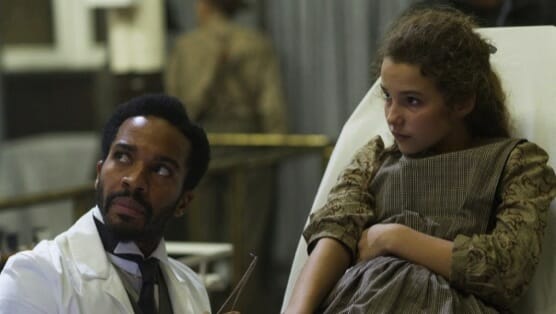The Knick: “Start Calling Me Dad”
(Episode 1.06)

In some ways, you have to admire the social conscience of The Knick. The creators and writers for the show Jack Amiel and Michael Begler dare to tackle a number of hot button issues from racism and inequality based on gender and wealth, to the abortion debate and the shady dealings of the pharmaceutical industry. It can be terribly heavy-handed at times, but they are proving out that for as many advances the world has made in the nearly 115 years since the setting of the series, we are still very much spinning our wheels, socially speaking.
All of those topics swirled around this week’s episode, but none were more potently rendered than the closing scene that took place in the home of The Robertsons, the benefactors of The Knickerbocker. As Cornelia settled herself in for the night, she received a terrifying visit from her future father-in-law, and current business partner with her father. His eyes moving over her body with lust, he oozed out underhanded messages of how much he is looking forward to the “rewards and pleasures” to be had with this union. And he kept insisting that, as the title suggest, she call him Dad.
I’m still getting nauseated thinking about it, but have to marvel at how Steven Soderbergh constructed the scene. The room stayed dimly lit, covered in shadows and red reflecting off the wallpaper. He shot the actors up close so you could see the naked desire in his eyes and the desperate fear in hers. And the ambient noise of every creak of the floor, and shifting of fabric in the clothes seemed amplified. Another example of just what a masterful director Soderbergh really is.
-

-

-

-

-

-

-

-

-

-

-

-

-

-

-

-

-

-

-

-

-

-

-

-

-

-

-

-

-

-

-

-

-

-

-

-

-

-

-

-








































